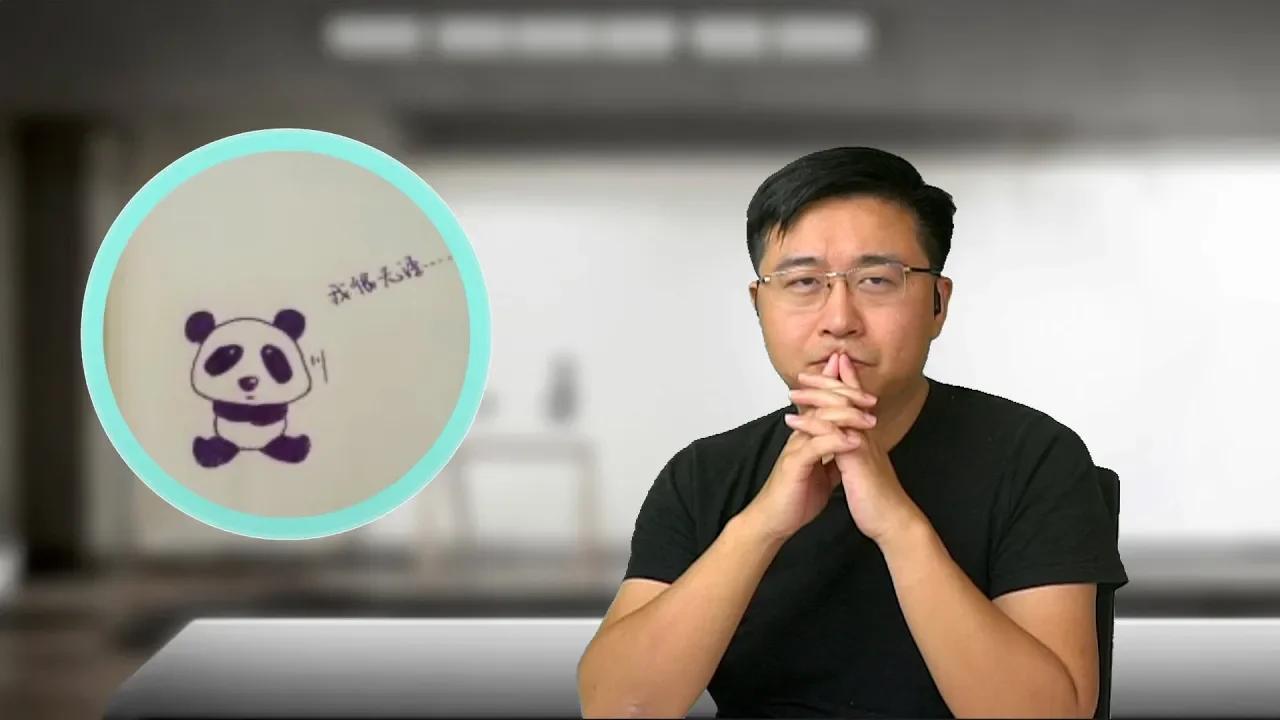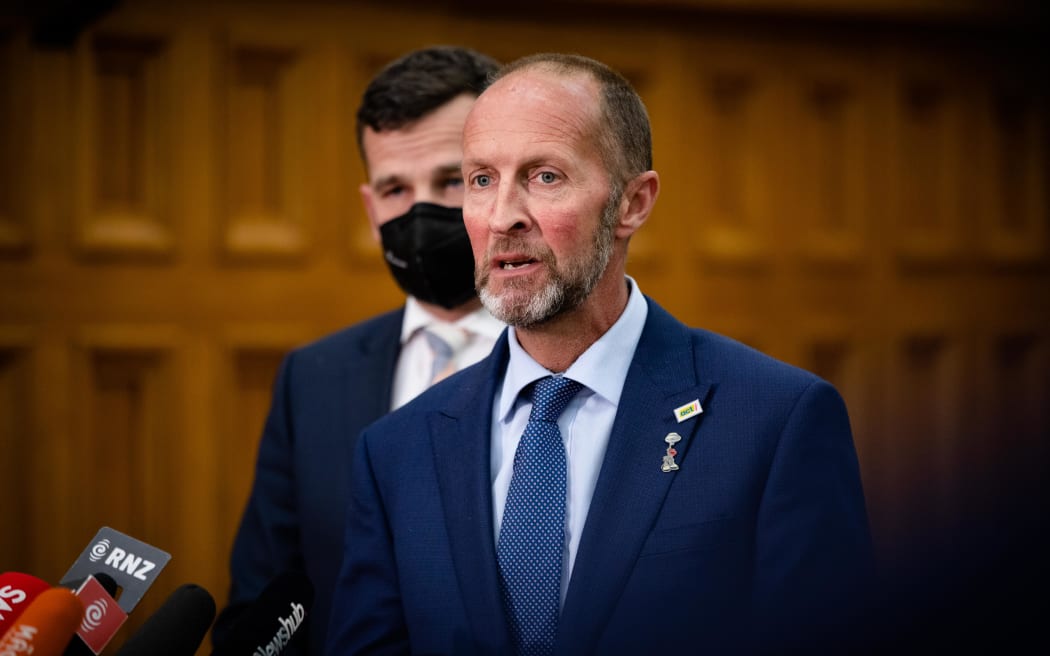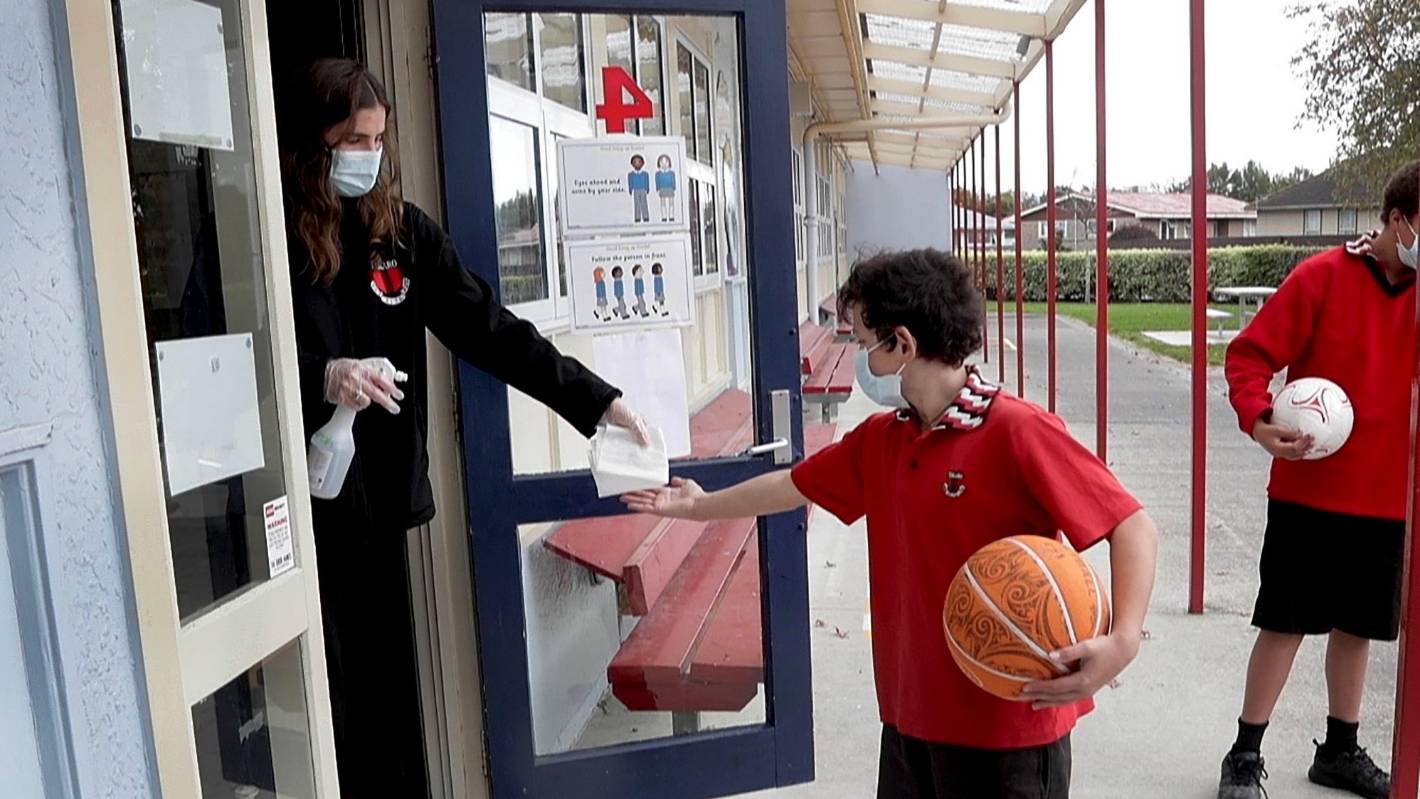ж–°иҘҝе…°е…Ёжҗңзҙўж–°й—»зӣҙж’ӯй—ҙпјҢжң¬ж–ҮжқҘиҮӘдәҺжҫіеӨ§еҲ©дәҡе№ҝж’ӯз”өеҸ°пјҲABCпјүзҡ„ж–Үз« пјҢ2019е№ҙ5жңҲ19ж—ҘпјҢвҖңжӮүе°јеҘ¶зҲёвҖқйў‘йҒ“еңЁи§Ҷйў‘ж’ӯж”ҫе№іеҸ°жІ№з®ЎпјҲYouTubeпјүдёҠй—®дё–гҖӮжҫіеӨ§еҲ©дәҡеҚҺдәәеҚўйӣ„йЈһеңЁеҗҺжқҘдёӨе№ҙеӨҡзҡ„ж—¶й—ҙйҮҢдәәж°”дёҚж–ӯдёҠеҚҮпјҢз§Ҝж”’дәҶ27дёҮеҗҚи®ўйҳ…зІүдёқгҖӮ
дҪңдёәдёҖдёӘж—¶ж”ҝиҜ„и®әзұ»зҡ„дё»ж’ӯпјҢеҚўйӣ„йЈһеңЁиҠӮзӣ®дёӯжҺўи®Ёзҡ„иҜқйўҳе№ҝжіӣгҖӮд»ҺиҜ„и®әдёӯеӣҪе’ҢжҫіеӨ§еҲ©дәҡзҡ„зӨҫдјҡзғӯзӮ№пјҢеҲ°и®Іиҝ°дёӘдәәзҡ„ж”ҝжІ»и§ӮзӮ№пјҢеҶҚеҲ°дёҺжҢҒдёҚеҗҢж”ҝи§Ғзҡ„зҪ‘з»ңзәўдәәеҜ№иҜқпјҢеҚўйӣ„йЈһзҡ„и§Ҷйў‘еңЁеҸ‘еёғеҗҺжҷ®йҒҚиҺ·еҫ—ж•°дёҮзҡ„ж’ӯж”ҫйҮҸпјҢжңүж—¶з”ҡиҮіеҸҜд»ҘиҫҫеҲ°ж•°еҚҒдёҮгҖӮ
вҖңжҲ‘зҡ„еҸЈеҸ·жҳҜвҖҳе…«жңҲеҚҒдә”жқҖеӨ§зәўйҫҷвҖҷпјҢзәўд»ЈиЎЁжһҒе·ҰпјҢйҫҷд»ЈиЎЁжһҒз«Ҝж°‘ж—Ҹдё»д№үпјҢвҖқжӣҫеңЁдёӯеӣҪеҪ“иҝҮиҠӮзӣ®еҲ¶дҪңзҡ„еҚўйӣ„йЈһе‘ҠиҜүABCдёӯж–ҮгҖӮ
еңЁи·қзҰ»жӮүе°јдёғеҚғдә”зҷҫе…¬йҮҢеӨ–зҡ„дёӯеӣҪе№ҝдёңзңҒдјҡе№ҝе·һпјҢжҫіеӨ§еҲ©дәҡдәәиө«зҖҡзқҝпјҲHarry HardingпјүеңЁ2020е№ҙ9жңҲеҲӣеҠһдәҶиҮӘе·ұзҡ„жІ№з®Ўйў‘йҒ“вҖңHazzaChinaVlogsвҖқгҖӮдёҖе№ҙеҗҺзҡ„д»ҠеӨ©пјҢиө«зҖҡзқҝзҡ„и®ўйҳ…зІүдёқж•°е·ІжҺҘиҝ‘дёӨдёҮгҖӮ
еңЁе№ҝе·һз”ҹжҙ»дәҶеҚҒеӨҡе№ҙпјҢеҰӮд»Ҡзҡ„иө«зҖҡзқҝеңЁе№ҝдёңе№ҝж’ӯз”өи§ҶеҸ°жӢ…д»»иӢұж–Үж–°й—»дё»ж’ӯпјҢиҙҹиҙЈжҜҸеӨ©еҲ¶дҪңдёҖжЎЈе№ҝж’ӯиҠӮзӣ®е’ҢдёҖжЎЈз”өи§Ҷж–°й—»иҠӮзӣ®гҖӮеҪ“ең°и§Ӯдј—дәІеҲҮең°еҸ«д»–вҖңеӨ§е“ҲвҖқпјҢжҲ–иҖ…HazzaгҖӮ
и®ёеӨҡе№ҙеүҚпјҢеӣ дёәе–ңж¬ўдёӯж–ҮжөҒиЎҢйҹід№җиҖҢеҶіе®ҡеӯҰдёӯж–Үзҡ„иө«зҖҡзқҝеңЁжҜ•дёҡеҗҺеҲ°дёӯеӣҪеҸ‘еұ•гҖӮеңЁиҮӘе·ұзҡ„йў‘йҒ“дёҠпјҢиө«зҖҡзқҝйҷӨдәҶи°Ҳи®әиҮӘе·ұеҜ№дёӯеӣҪзӨҫдјҡе’ҢдёҖдәӣж”ҝжІ»и®®йўҳзҡ„зҗҶи§Јд»ҘеӨ–пјҢиҝҳдјҡеҲҶдә«иҮӘе·ұжј”е”ұзҡ„дёӯж–ҮжӯҢжӣІгҖӮ
вҖңиҝҷдёӘйў‘йҒ“зҡ„жүҖжңүеҶ…е®№йғҪжҳҜзӢ¬з«ӢеҲ¶дҪңзҡ„пјҢдёҺжҲ‘зҡ„е№іеёёзҡ„е·ҘдҪңж— е…іпјҢвҖқиө«зҖҡзқҝиҜҙгҖӮ
иҝ‘дәӣе№ҙжқҘпјҢжҢҒжңүдёҚеҗҢж”ҝи§ҒгҖҒиҜҙдёӯж–Үзҡ„зҪ‘зәўеңЁиҘҝж–№зӨҫеӘ’е№іеҸ°дёҠеұ•ејҖдәҶдёҖеңәж—·ж—ҘжҢҒд№…зҡ„еҜ№еіҷгҖӮ
еҚўйӣ„йЈһе’Ңиө«зҖҡзқҝйғҪз”Ёдёӯж–ҮеҲ¶дҪңиҠӮзӣ®пјҢдҪҶ他们еңЁиҠӮзӣ®дёӯзңӢеҫ…дёӯеӣҪи®®йўҳзҡ„и§’еәҰеҮ д№Һе®Ңе…ЁдёҚеҗҢгҖӮеңЁABCдёӯж–ҮжңҖж–°дёҖжңҹзҡ„гҖҠзӣҙж’ӯжҫіжҙІгҖӢиҠӮзӣ®дёӯпјҢ他们е’ҢеҮ дҪҚеҳүе®ҫеұ•ејҖдәҶдёҖеңәеҲ«ејҖз”ҹйқўзҡ„еҜ№иҜқгҖӮ
вҖңеҸҚе…ұвү еҸҚеҚҺпјҢзҲұеӣҪвү зҲұе…ҡвҖқ
еҚўйӣ„йЈһиҜҙпјҢд»–еҸЈдёӯзҡ„вҖңеӨ§зәўйҫҷвҖқжҢҮзҡ„жҳҜеҜ№ж„ҸиҜҶеҪўжҖҒзҡ„еһ„ж–ӯгҖӮд»–иҜҙпјҢиҮӘе·ұеҲ¶дҪңзҡ„еҶ…е®№еҸҚеҜ№зҡ„жҳҜдёӯеӣҪе…ұдә§е…ҡпјҢиҖҢвҖңдёҚжҳҜеҸҚеҚҺпјҢд№ҹдёҚеҸҚдёӯвҖқгҖӮ
вҖңжҲ‘дёӘдәәи®ӨдёәеҸҚе…ұдёҚзӯүдәҺеҸҚеҚҺ……йҰ–е…ҲжҲ‘дёҚжҳҜеҸҚеҚҺпјҢд№ҹдёҚеҸҚдёӯпјҢжҲ‘иҮӘе·ұзҡ„иә«д»Ҫи®ӨеҗҢжҳҜжҫіеӨ§еҲ©дәҡдәәпјҢдёӯеӣҪдәәжҲ–еҚҺдәәпјҢжҲ‘еҒҡзҡ„еҫҲеӨҡдәӢжғ…зҡ„зЎ®жҳҜеҸҚе…ұзҡ„пјҢвҖқеҚўйӣ„йЈһиҜҙгҖӮ
еңЁиў«й—®еҸҠд»–еҜ№иҮӘе·ұзҡ„е®ҡдҪҚжҳҜе…¬ж°‘и®°иҖ…пјҢиҝҳжҳҜеЁұд№җиҠӮзӣ®дё»жҢҒдәәж—¶пјҢеҚўйӣ„йЈһиҜҙпјҢд»–дёҖзӣҙдё»еј вҖңиҜҙдәәиҜқвҖқпјҢд№ҹе°ұжҳҜи®ІйҒ“зҗҶгҖҒз”Ёжө…жҳҫжҳ“жҮӮзҡ„ж–№ејҸи°Ҳж–°й—»гҖӮ
вҖңдҪ еҸҜд»Ҙи®ӨдёәжҲ‘жҠҠж–°й—»еЁұд№җеҢ–дәҶпјҢдҪҶеҜ№жҲ‘жқҘиҜҙиҝҷе°ұжҳҜдёҖдёӘжҺҘең°ж°”зҡ„иЎЁиҫҫж–№ејҸгҖӮиҷҪ然жҲ‘еҸӘжңүдёҖдёӘдәәзҡ„еҠӣйҮҸпјҢдҪҶжҳҜжҲ‘иҝҳжҳҜеҫҲйҮҚи§Ҷж–°й—»зҙ жқҗжқҘжәҗзҡ„жҹҘйӘҢгҖӮвҖқ
еҮ дёӘжңҲеүҚпјҢеҚўйӣ„йЈһдёҺи§ӮзӮ№дәІдёӯеӣҪе…ұдә§е…ҡзҡ„жІ№з®ЎзҪ‘зәўдё»ж’ӯз»„з»ҮдәҶдёҖеңәзӣҙж’ӯгҖӮд»–еҪўе®№йӮЈжңҹиҠӮзӣ®жҳҜдёҖеңәвҖңиҫ©и®әвҖқгҖӮ
иҝҷжҳҜд»–зҡ„зі»еҲ—иҠӮзӣ®гҖҠжҲ‘зҡ„зІүзәўжңӢеҸӢгҖӢе…¶дёӯзҡ„дёҖйӣҶгҖӮеҚўйӣ„йЈһиҜҙпјҢд»–еёҢжңӣжҠҠиҫ©и®әзҡ„еҸҰдёҖж–№еҪ“дҪңиҮӘе·ұзҡ„жңӢеҸӢпјҢеңЁвҖңеҸҚе…ұдёҚзӯүдәҺеҸҚеҚҺпјҢзҲұеӣҪдёҚзӯүдәҺзҲұе…ҡвҖқзҡ„жЎҶжһ¶дёӢиҝӣиЎҢдәӨжөҒгҖӮ
вҖңжҲ‘дёҖзӣҙеңЁжүҫеҜ№йқўзҡ„пјҢе’ҢжҲ‘ж„Ҹи§ҒзӣёеҸҚзҡ„дәәеҒҡиҝһзәҝ……жҲ‘зү№еҲ«е–ңж¬ўе’Ңиҝҷз§ҚжһҒз«Ҝзҡ„вҖ”вҖ”и·ҹжҲ‘зҡ„ж„Ҹи§ҒдёҚдёҖж ·зҡ„гҖҒеЈ°йҹіеҫҲе°‘иў«дәәеҗ¬еҲ°зҡ„иҝҷдәӣдәәеҜ№иҜқдәӨжөҒпјҢвҖқеҚўйӣ„йЈһиҜҙгҖӮ
еҪ“иў«й—®еҸҠд»–жҳҜеҗҰеҳҙдёҠйғҪжҳҜдё»д№үпјҢеҝғйҮҢйғҪжҳҜз”ҹж„Ҹж—¶пјҢеҚўйӣ„йЈһиҜҙпјҢд»–зҡ„收е…Ҙе…ЁйғЁжқҘиҮӘжІ№з®Ўи§Ҷйў‘зҡ„е№ҝе‘Ҡиҙ№пјҢд»ҘеҸҠиҮӘе·ұеңЁеҸҰдёҖдёӘдјҡе‘ҳе№іеҸ°дёҠиҺ·еҫ—зҡ„жҚҗиө гҖӮ
вҖңеҰӮжһңдҪ жҳҜеҸҚе…ұзҡ„дәәпјҢдҪ еҸӘжңүйқ YouTubeиҝҷдёҖдёӘе№іеҸ°иөҡй’ұпјҢYouTubeжҳҜе”ҜдёҖдёҖдёӘз»ҷеҸҚе…ұзҡ„еЈ°йҹіжҸҗдҫӣиө„йҮ‘ж”ҜжҢҒзҡ„е№іеҸ°гҖӮвҖқ
д»–иҜҙпјҢдёҺвҖңдәІе…ұвҖқзҪ‘зәўзҡ„и§Ҷйў‘еҸҳзҺ°иғҪеҠӣзӣёжҜ”пјҢиҝҷжҳҜвҖңдёҖж №иҗқеҚңе’ҢдёҖе Ҷйқ’иҸңвҖқзҡ„еҢәеҲ«гҖӮд»–иҜҙпјҢжҺҘе№ҝе‘ҠжҲ–зӣҙж’ӯеёҰиҙ§еҜ№е’Ңд»–дёҖж ·зҡ„ж—¶ж”ҝиҜ„и®әдё»ж’ӯжқҘиҜҙжҳҜдёҚеҸҜиғҪзҡ„гҖӮ
вҖңжҲ‘еӣ дёәз”ҹз—…пјҢдјҡе‘ҳиҠӮзӣ®е·Із»ҸдёүдёӘжңҲжІЎжӣҙж–°дәҶпјҢжҲ‘зҡ„дјҡе‘ҳ们йғҪйқһеёёж…·ж…Ёең°еңЁж”ҜжҢҒжҲ‘пјҢвҖқд»–иҜҙгҖӮ
вҖңжҲ‘дёӘдәәеҒҡиҠӮзӣ®дёҖе№ҙеӨҡжқҘпјҢжҲ‘и§үеҫ—жңҖж–№дҫҝгҖҒжңҖз®ҖеҚ•гҖҒжңҖй«ҳж•ҲгҖҒжңҖиҪ»жқҫзҡ„ж–№жі•е°ұжҳҜжҠҠиҮӘе·ұжғід»Җд№ҲиҜҙеҮәжқҘгҖӮиҖҢдёҚжҳҜеҺ»иҗҘйҖ дёҖз§ҚиҲҶи®әж°ӣеӣҙпјҢиЎЁжј”д»Җд№ҲпјҢйӮЈжҳҜжңҖзҙҜзҡ„гҖӮвҖқ
вҖңеҸ‘иЎЁзңӢжі•гҖҒеҲҶдә«з”ҹжҙ»вҖқ
2021е№ҙ5жңҲпјҢдёӯеӣҪеӣҪ家主еёӯд№ иҝ‘е№іиЎЁзӨәпјҢдёӯеӣҪиҰҒеңЁеӣҪйҷ…зӨҫдјҡе№ҝдәӨжңӢеҸӢпјҢеҠӘеҠӣеЎ‘йҖ вҖңеҸҜдҝЎгҖҒеҸҜзҲұгҖҒеҸҜ敬вҖқзҡ„еҪўиұЎгҖӮиҜқйҹіиҗҪең°пјҢеҲҶжһҗдәәеЈ«и®ӨдёәдёӯеӣҪж”ҝеәңе°ҶеҜ»жұӮжӣҙжҺҘең°ж°”зҡ„ж–№ејҸжӢ“еұ•е’Ңе·©еӣәеңЁжө·еӨ–зҡ„е®Јдј е·ҘдҪңгҖӮ
йғЁеҲҶеӣҪйҷ…еӘ’дҪ“еңЁжҠҘйҒ“дёӯжҸҗеҲ°иҝҮдёҖдәӣеңЁеҚҺеӨ–зұҚдё»ж’ӯеҸӮеҠ дәҶдёӯеӣҪж”ҝеәңз»„з»Үзҡ„е®Јдј жҙ»еҠЁгҖӮд№ҹжңүеЈ°йҹіжҖҖз–‘пјҢиҝҷдәӣдё»ж’ӯжҳҜжӢҝй’ұеҠһдәӢпјҢдёәдёӯеӣҪж”ҝеәңеҒҡвҖңеӨ§еӨ–е®ЈвҖқгҖӮ
иө«зҖҡзқҝиҜҙпјҢд»–еңЁдёӯеӣҪи®ӨиҜҶзҡ„еӨ–зұҚзҪ‘зәўдё»ж’ӯдёҚеӨҡпјҢзӣ®еүҚиҝҳжІЎжңүеҗ¬еҲ°иә«иҫ№жңүдәәиў«еҫҒеҸ¬еҸӮеҠ е®Јдј йЎ№зӣ®пјҢд№ҹиЎЁзӨәиҮӘе·ұзҡ„жІ№з®ЎиҙҰеҸ·жІЎжңүеҫ—еҲ°иҝҮдёӯеӣҪж”ҝеәңжҲ–е®ҳеӘ’зҡ„з»Ҹиҙ№иө„еҠ©гҖӮ
вҖңд№ дё»еёӯиҜҙе®ҢиҝҷдәӣиҜқд»ҘеҗҺпјҢеҜ№жҲ‘зҡ„з”ҹжҙ»жІЎжңүд»»дҪ•зҡ„еҪұе“Қ…… жҲ‘дёҚиғҪе‘ҠиҜүдҪ е®Ңе…ЁжҳҜжІЎжңүиҝҷж ·зҡ„зҺ°иұЎпјҢеӣ дёәжҲ‘иҮӘе·ұдёҚзҹҘйҒ“пјҢвҖқиө«зҖҡзқҝиҜҙгҖӮ
вҖң[иә«иҫ№зҡ„дё»ж’ӯ]и·ҹжҲ‘иҜҙжІЎжңү收й’ұпјҢ他们иҝҳејҖзҺ©з¬‘иҜҙвҖҳеҰӮжһңиғҪ收й’ұе°ұеҘҪдәҶвҖҷгҖӮ
вҖңжҲ‘жңүдё»еҠЁи·ҹжҲ‘е·ҘдҪңеҚ•дҪҚиҜҙжҲ‘жңүиҝҷдёӘ[жІ№з®Ў]еҸ·пјҢдҪҶжҳҜ他们д»ҺжқҘжІЎжңүиҰҒжұӮжҲ‘еҺ»еҒҡд»»дҪ•еҶ…е®№пјҢд№ҹдёҚдјҡжҺ§еҲ¶жҲ‘зҡ„иЁҖи®әгҖӮвҖқ
иө«зҖҡзқҝиҜҙпјҢдёҖдәӣдәҡжҙІзҡ„еӣҪ家е’Ң欧жҙІеӣҪ家зҡ„ж”ҝеәңдјҡйҖҡиҝҮеңЁе№ҝе·һзҡ„йўҶдәӢйҰҶйӮҖиҜ·д»–зҡ„иҠӮзӣ®еүҚеҫҖжӢҚж‘„гҖӮиҝҷз§Қиў«з§°дёәжҺЁе№ҝдҪ“йӘҢжёёпјҲFamiliarisation tripпјүзҡ„жҙ»еҠЁд»–жӣҫеҸӮеҠ иҝҮпјҢдҪҶйӮЈдәӣеӣҪ家зҡ„ж”ҝеәңеҜ№иҠӮзӣ®з»„жІЎжңүе…·дҪ“зҡ„иҰҒжұӮгҖӮ
вҖңжІЎжңүи·ҹжҲ‘们иҜҙдёҖе®ҡиҰҒжӢҚиҝҷдёӘпјҢдёҖе®ҡиҰҒиҜҙиҝҷдёӘпјҢжүҖд»ҘжҲ‘жғіеҸҜиғҪеӣҪеҶ…зҡ„жҙ»еҠЁеә”иҜҘд№ҹжҳҜе·®дёҚеӨҡпјҢвҖқиө«зҖҡзқҝиҜҙпјҢе°Ҫз®Ўд»–жӣҫз»ҸеҸ—еҲ°иҝҮйӮҖиҜ·пјҢдҪҶд»–еңЁдёӯеӣҪеӣҪеҶ…вҖңд»ҺжқҘжІЎжңүеҸӮеҠ иҝҮиҝҷж ·зҡ„жҙ»еҠЁвҖқгҖӮ
вҖңжҲ‘дёӘдәәи®ӨдёәжҳҜжІЎжңүд»»дҪ•й—®йўҳзҡ„пјҢдҪҶжҳҜжҲ‘жҳҜжӢ…еҝғжҲ‘зҡ„и§Ӯдј—дјҡиҜҜдјҡпјҢд»–дјҡи§үеҫ—жҲ‘жҳҜеӣ дёә收дәҶй’ұпјҢжҲ–иҖ…жҲ‘зҡ„иЁҖи®әиў«жҺ§еҲ¶пјҢжүҖд»ҘжҲ‘е°ұжӢ’з»қпјҢжІЎжңүеҺ»еҸӮеҠ гҖӮ
вҖңжҲ‘еҒҡYouTubeдёҚжҳҜдёәдәҶй’ұпјҢжҲ‘жңүдёҖд»ҪзЁіе®ҡзҡ„е·ҘдҪңпјҢжңүзЁіе®ҡзҡ„收е…ҘгҖӮжҲ‘еҒҡYouTubeжҳҜеӣ дёәжҲ‘иҰҒеҸ‘иЎЁжҲ‘иҮӘе·ұзҡ„жғіжі•пјҢеҲҶдә«жҲ‘зҡ„з”ҹжҙ»гҖӮвҖқ
е°Ҫз®ЎеҰӮжӯӨпјҢиө«зҖҡзқҝжӣҫеӨҡж¬ЎйҒҮеҲ°зҪ‘з»ңж”»еҮ»пјҢз”ҡиҮіжңүдәәжҠҠд»–з§°дёәвҖңеҸӣеҫ’вҖқгҖӮ
вҖңжҲ‘еңЁеӣҪеҶ…еҸ‘иЎЁдёҖдәӣиЁҖи®әд№ҹдјҡиў«зҪ‘еҸӢйӘӮ…… [еңЁYouTubeдёҠжҳҜ]з№ҒдҪ“еӯ—пјҢиҝҳжңүжңүзІӨиҜӯиЎЁиҫҫж–№ејҸзҡ„пјҢиҝҳжңүжҫіеӨ§еҲ©дәҡдәәд№ҹйӘӮжҲ‘пјҢж”»еҮ»жҲ‘пјҢвҖқиө«зҖҡзқҝиҜҙгҖӮ
вҖңзҪ‘з»ңдёҠжңүдәәеҲҶдә«дәҶжҲ‘жҫіжҙІзҡ„з”өиҜқеҸ·з ҒгҖӮжңүдёҖж®өж—¶й—ҙпјҢжңүеҫҲеӨҡжҲ‘дёҚи®ӨиҜҶзҡ„дәәз»ҷжҲ‘жү“з”өиҜқжқҘйӘӮжҲ‘пјҢиҜҙдёҖдәӣзү№еҲ«йҡҫеҗ¬зҡ„иҜқгҖӮ
вҖңиҝҷдёӘжҳҜжҲ‘и§ҒиҝҮжңҖеҸҜжҖ•зҡ„дәӢжғ…гҖӮвҖқ
е№іеҸ°зҡ„иҙЈд»»
еңЁжҫіеӨ§еҲ©дәҡпјҢжҖ»зҗҶиҺ«йҮҢжЈ®жң¬е‘ЁжҠҠвҖңзҪ‘з»ңе–·еӯҗвҖқеҪўе®№дёәвҖңжҮҰеӨ«вҖқпјҢ并表зӨәе Әеҹ№жӢүе°Ҷз ”з©¶еҰӮдҪ•зЎ®дҝқдәә们еҜ№е…¶иЎҢдёәиҙҹиҙЈгҖӮ
иҺ«йҮҢжЈ®жҖ»зҗҶиҜҙпјҢзӨҫдәӨеӘ’дҪ“жҳҜвҖңжҮҰеӨ«зҡ„е®«ж®ҝвҖқпјҲcoward’s palaceпјүпјҢе…Ғи®ёдәә们дёҚиҙҹиҙЈд»»гҖҒдёҚи®ЎеҗҺжһңең°еҸ‘иЎЁзІ—дҝ—е’ҢеҶ’зҠҜжҖ§зҡ„иҜ„и®әгҖӮ
вҖңйӮЈдәӣеҢҝеҗҚеңЁзӨҫдәӨеӘ’дҪ“дёҠиҜӢжҜҒеҲ«дәәгҖҒйӘҡжү°д»–дәәгҖҒж¬әиҙҹд»–дәәпјҢд»ҺдәӢиҜҪи°ӨжҖ§иЁҖи®әзҡ„жҮҰеӨ«пјҢ他们йңҖиҰҒеҜ№д»–们жүҖиҜҙзҡ„еҶ…е®№иҙҹиҙЈпјҢвҖқд»–иҜҙгҖӮ
е…¶д»–зӨҫдәӨеӘ’дҪ“пјҢдҫӢеҰӮи„ёд№ҰпјҲFacebookпјүиҝ‘жңҹжңүеҗ№е“ЁдәәзҲҶж–ҷпјҢиҜҘе…¬еҸёдёәдәҶе•ҶдёҡеҲ©зӣҠвҖңеҠ©й•ҝеҲҶиЈӮвҖқпјҢжңӘиғҪжңүж•Ҳжү“еҮ»еҒҮж¶ҲжҒҜгҖӮ
жҫіеӨ§еҲ©дәҡжҖ»зҗҶжҸҗеҸҠзҡ„жғ…еҶөеҜ№еҚўйӣ„йЈһе’Ңиө«зҖҡзқҝжқҘиҜҙ并дёҚйҷҢз”ҹгҖӮ
ж—¶ж”ҝиҜ„и®әе‘ҳгҖҒеүҚдёӯеӣҪй©»жӮүе°јеӨ–дәӨе®ҳжқЁж¶өиҜҙпјҢеҚҺдәәеңЁиҘҝж–№зӨҫдәӨеӘ’дҪ“дёҠеҜ№еіҷзҡ„и§ӮзӮ№пјҢжңүж—¶ж¶үеҸҠдәәиә«ж”»еҮ»пјҢд№ҹжңүеҸҜиғҪж¶үеҸҠеҸҚеҜ№ж°‘дё»иҮӘз”ұпјҢз”ҡиҮіи§ҰеҸҠжі•еҫӢгҖӮ
д»–иҜҙпјҢеңЁжҫіеӨ§еҲ©дәҡпјҢе…·жңүдәәиә«ж”»еҮ»гҖҒдҫ®иҫұдәәж јгҖҒиҜҪи°ӨгҖҒдёҚе®һиЁҖи®әзӯүзҪ‘з»ңжҡҙеҠӣиЎҢдёәзҡ„иҙҰеҸ·жӢҘжңүиҖ…жҲ–жңәжһ„йЎ»иҙҹжі•еҫӢиҙЈд»»гҖӮ
вҖңжңҖиҝ‘жҫіеӨ§еҲ©дәҡзҡ„жңҖй«ҳжі•йҷўжңүиҝҷж ·зҡ„еҲӨдҫӢ…… иҙҰеҸ·зҡ„дё»дәәиҰҒиҙҹиҙЈпјҢвҖқжқЁж¶өиҜҙпјҢиҝҷеҸҜиғҪдјҡеҮҸе°‘иәІеңЁиҷҡжӢҹдё–з•ҢиҙҰеҸ·еҗҚз§°д№ӢдёӢзҡ„дёҚиүҜиЎҢдёәгҖӮ
вҖңдёӨйҮҚвҖқдё–з•Ңзҡ„иғҢеҗҺ
еҜ№дәҺзӣ®еүҚжІ№з®ЎдёҠеҚҺдәәзҪ‘зәўдё»ж’ӯеҪўжҲҗзҡ„з”ҹжҖҒеңҲпјҢзҡҮ家墨尔жң¬зҗҶе·ҘеӨ§еӯҰпјҲRMITпјүж•°еӯ—еӘ’дҪ“专家дәҺжө·жё…ж•ҷжҺҲиҜҙпјҢиҮӘеӘ’дҪ“дёәдәҶеҗёеј•зңјзҗғе°ұйңҖиҰҒдҝқжҢҒе…¶дәүи®®жҖ§пјҢиҝҷдёҺдҫӢеҰӮзҰҸе…Ӣж–ҜеңЁеҶ…зҡ„дј з»ҹеӘ’дҪ“зұ»дјјгҖӮ
вҖңдҪ и¶ҠжҳҜдёӯиӮҜпјҢи¶ҠжҳҜдёӯй—ҙжҙҫпјҢи¶ҠжІЎжңүдәүи®®зҡ„иҜқпјҢдҪ зҡ„зІүдёқе°ұи¶Ҡи§үеҫ—дҪ жІЎжңүж„ҸжҖқпјҢвҖқдәҺжө·жё…ж•ҷжҺҲиҜҙгҖӮ
еҘ№иҝҳжҢҮеҮәпјҢеҸ—дј—д№ҹеңЁд»ҠеӨ©иҝҷдёӘж”ҝжІ»и®®йўҳеЁұд№җеҢ–зҡ„ж—¶з©әпјҢдёҚеҶҚиҖғиҷ‘ж–°й—»жқҘжәҗжҳҜеҗҰеҸҜйқ пјҢиҖҢеғҸиҝҪйҹ©еү§дёҖж ·вҖңжҠұзқҖеӣҙи§ӮдёҖеҲҮзҡ„еҝғжҖҒвҖқи§ӮзңӢж—¶ж”ҝж–°й—»гҖҒеӣҪйҷ…ж–°й—»гҖӮ
вҖңеӣ дёәеҗ„з§Қйҳҙи°Ӣи®әгҖҒеҒҮж¶ҲжҒҜгҖҒеҗ„з§Қдәүи®®пјҢиҝҷдәӣеҗғз“ңзҫӨдј—……и§үеҫ—иҝҷжҳҜдёӘж¶ҲйҒЈгҖӮ他们дёҚеңЁд№ҺзңҹзӣёеҰӮдҪ•пјҢдҝЎжҒҜжқҘжәҗпјҢвҖқдәҺжө·жё…ж•ҷжҺҲиҜҙгҖӮ
вҖңе°ұжҠҠеӣҪйҷ…ж–°й—»гҖҒеҚҡдё»д№Ӣй—ҙзҡ„дәүи®әе°ұеҪ“еҒҡжҳҺжҳҹеҮәиҪЁдёҖж ·зҡ„еЁұд№җж–°й—»жқҘзңӢгҖӮ
вҖңи¶ҠжҳҜеҢӘеӨ·жүҖжҖқпјҢдёӨдёӘдәәжү“еҫ—и¶ҠеҺүе®іпјҢи¶ҠиғҪ满足他们зңӢзғӯй—№пјҢзңӢзғӯй—№дёҚжҖ•дәӢеӨ§гҖӮвҖқ
жҫіжёҜиҒ”з»ҙе·һдё»еёӯгҖҒеүҚйҰҷжёҜиө„ж·ұеӘ’дҪ“дәәJane PoonиҜҙпјҢжІ№з®ЎзҪ‘зәўдё»ж’ӯе°ұжҳҜж—¶ж”ҝиҜ„и®әе‘ҳпјҢ他们表иҫҫзҡ„жҳҜиҮӘе·ұзҡ„и§ӮзӮ№пјҢеӣ жӯӨж— йңҖдҝқжҢҒе®ўи§ӮгҖҒе…¬жӯЈгҖҒе№іиЎЎгҖӮдҪҶжҳҜпјҢеҘ№иҜҙдҝЎжҒҜеҮҶзЎ®еҲҷжҳҜдёҖдёӘжңҖеҹәжң¬зҡ„иҰҒжұӮгҖӮ
вҖңYouTubersе®һйҷ…дёҠе°ұжҳҜж—¶ж”ҝиҜ„и®әе‘ҳпјҢдҪ жңүдҪ зҡ„з«ӢеңәгҖӮYouTubersдёҚжҳҜи®°иҖ…пјҢйҷӨйқһдҪ и®Өе®ҡиҮӘе·ұжҳҜи®°иҖ…пјҢвҖқеҘ№иҜҙгҖӮ
вҖңдҪҶжҳҜпјҢжҲ‘и§үеҫ—жңҖйҮҚиҰҒзҡ„他们讨и®әзҡ„дәӢе®һдёҖе®ҡиҰҒеҮҶзЎ®пјҢдёҚиғҪиҜҙдёҖдәӣеҒҮзҡ„ж¶ҲжҒҜгҖӮвҖқ
еўЁе°”жң¬еӨ§еӯҰеӣҪйҷ…е…ізі»зЎ•еЈ«гҖҒвҖңжҫіжҙІеҚҺдәәдәӢе®һж ёжҹҘвҖқе°Ҹз»„еҸ‘иө·дәәжқЁеҶ°жё…иҜҙпјҢж— и®әжҳҜдёӯеӣҪиҝҳжҳҜиҘҝж–№зҡ„зӨҫдәӨеӘ’дҪ“пјҢз®—жі•еҜ№дҝЎжҒҜзҡ„иҝҮж»ӨйғҪеҸҜиғҪдјҡиҜҜеҜјеҸ—дј—гҖӮ
вҖң[иҝҷдәӣзӨҫеӘ’]еұҸи”ҪдәҶдёҖдәӣдҪ дёҚж„ҹе…ҙи¶Је’ҢдёҚи®ӨеҗҢзҡ„еҶ…е®№гҖӮиҝҷе°ұйҖ жҲҗдәҶдёҖз§ҚвҖҳиҝҮж»Өж°”жіЎвҖҷпјҲfilter bubbleпјүпјҢжңҖеҗҺе°ұеҸҳжҲҗдәҶдёҖз§ҚвҖҳеӣһйҹіе®ӨвҖҷпјҲecho chamberпјүгҖӮдёҚж–ӯжҺҘеҸ—дёҖдәӣдҪ ж„ҝж„ҸзңӢеҲ°зҡ„дёңиҘҝгҖӮе°ұдјҡй”ҷи®Өдёәиҝҷе°ұжҳҜеҪ“дёӢзҡ„ж”ҝжІ»е…үи°ұпјҢе…¶е®һдёҚ然гҖӮвҖқ
еҚўйӣ„йЈһиҜҙпјҢд»Һд»–дёӘдәәеҒҡдё»ж’ӯзҡ„з»ҸйӘҢзңӢжқҘпјҢд»ҘжІ№з®ЎдёәдҫӢпјҢж’ӯж”ҫйҮҸзҡ„дё»иҰҒжқҘжәҗжҳҜжқҘиҮӘвҖңеҗҢжё©еұӮвҖқзҡ„еҸ—дј—пјҢиҖҢдёҚжҳҜе’Ңдё»ж’ӯи§ӮзӮ№зӣёеҜ№зҡ„дәәзҫӨгҖӮ
вҖңжҲ‘еҸҜд»ҘиҙҹиҙЈд»»ең°и®ІпјҢ90%зҡ„дјҡзңӢдҪ йў‘йҒ“зҡ„дәәйғҪжҳҜи®ӨеҗҢдҪ жҳҜжҹҗдёҖдёӘж„ҸиҜҶеҪўжҖҒзҡ„пјҢиҖҢдҪ е’ҢжҲ‘жҳҜвҖҳеҗҢжё©еұӮвҖҷзҡ„пјҢвҖқеҚўйӣ„йЈһиҜҙгҖӮ
вҖң他们жҳҜжғіеҗ¬иҮӘе·ұи§үеҫ—иҲ’жңҚзҡ„дёңиҘҝпјҢиҖҢдёҚжғідҪ жқҘжҢ‘жҲҳ他们зҡ„и®ӨзҹҘгҖӮвҖқ
жӮүе°јеҘ¶зҲёе…ідәҺж–°иҘҝе…°дәәAndy BorehamеңЁдёӯеӣҪи§Ғд№үеӢҮдёәдәӢ件зҡ„и®Ёи®әпјҡ
New Zealand Review News Live Room, this article is from the Australian Broadcasting Corporation (ABC): May 19, 2019, “Sydney Daddy” channel debuted on the video platform YouTube. Australian Chinese Lu Xiongfei’s popularity has been rising steadily over the past two years, accumulating 270,000 subscribed fans.
As a current affairs commentator, Lu Xiongfei discusses a wide range of topics on his show. From commenting on social hot topics in China and Australia, to sharing personal political views, to engaging in conversations with internet celebrities holding different opinions, Lu Xiongfei’s videos generally garner tens of thousands of views upon release, sometimes even reaching hundreds of thousands.
“My slogan is ‘kill the Big Red Dragon on August 15th.’ Red represents extreme left, and dragon represents extreme nationalism,” Lu Xiongfei, who once worked in program production in China, told ABC Chinese.
Seven thousand five hundred kilometers away from Sydney in Guangzhou, the capital of Guangdong Province, Australia, Harry Harding founded his own YouTube channel “HazzaChinaVlogs” in September 2020. A year later, Harry Harding’s subscriber count has approached twenty thousand.
Having lived in Guangzhou for over a decade, Harry Harding now works as an English news anchor at Guangdong Radio and Television Station, producing a daily radio program and a television news program. Local viewers affectionately call him “Big Ha” or Hazza.
Many years ago, driven by his love for Chinese pop music, Harry Harding decided to study Chinese after graduating. On his channel, besides discussing his understanding of Chinese society and some political issues, Harry Harding also shares Chinese songs he sings.
“All the content on this channel is independently produced and unrelated to my usual work,” Harry Harding said.
In recent years, Chinese-speaking internet celebrities with different political views have engaged in a prolonged confrontation on Western social media platforms.
Lu Xiongfei and Harry Harding both produce programs in Chinese, but their perspectives on Chinese issues in the programs are almost entirely different. In the latest episode of “Live from Australia” on ABC Chinese, they and several guests engaged in a unique dialogue.
“Anti-Communism вү Anti-China, Patriotism вү Loving the Party”
Lu Xiongfei said that when he mentions the “Big Red Dragon,” he is referring to the monopoly of ideology. He said the content he produces opposes the Chinese Communist Party, but “it’s not anti-China, nor anti-Chinese.”
“I personally believe that being anti-Communist does not mean being anti-Chinese… Firstly, I am not anti-China, nor anti-Chinese. My own identity is Australian, not Chinese or Chinese Australian. Many things I do are indeed anti-Communist,” Lu Xiongfei said.
When asked whether he considers himself a citizen journalist or an entertainment show host, Lu Xiongfei said he has always advocated for “speaking human language,” which means discussing news in a logical and easy-to-understand manner.
“You may think I am making news entertaining, but for me, this is just a down-to-earth way of expression. Although I am just one person, I still attach great importance to verifying the sources of news materials,” he said.
A few months ago, Lu Xiongfei organized a live broadcast with a YouTuber who holds pro-Chinese Communist Party views. He described that episode as a “debate.”
It was one episode of his series “My Pink Friends.” Lu Xiongfei said he hopes to regard the opposing side in the debate as his friends, engaging in communication within the framework of “anti-Communism does not mean anti-China, and patriotism does not mean loving the Party.”
“I have been looking for people with opposing views who are extremely different from me – those whose opinions are rarely heard and are different from mine,” Lu Xiongfei said.
Australian Chinese political commentator Lu Xiongfei said he is anti-Communist, not anti-Chinese.
When asked if he is all talk and no business, Lu Xiongfei said all his income comes from advertising revenue from YouTube videos and donations he receives on another membership platform.
“If you are anti-Communist, and YouTube is the only platform where you can make money, YouTube is the only platform that supports funding for anti-Communist voices,” he said.
He said compared to the monetization capability of “pro-Communist” internet celebrities, it’s like “a carrot and a bunch of vegetables.” He said it is impossible for political commentators like him to accept advertisements or conduct live sales.
“I have been ill, and the membership program has not been updated for three months. My members have been very generous in supporting me,” he said.
“In the more than a year that I have been doing the program, I think the most convenient, simplest, most efficient, and easiest way is to say what I think. Instead of creating a public opinion atmosphere, performing, which is the most tiring.”
“Expressing Opinions, Sharing Life”
Hazza currently has his own YouTube channel, HazzaChinaVlogs.
In May 2021, Chinese President Xi Jinping said that China should make friends broadly in the international community and strive to shape a “credible, lovable, and respectable” image. As soon as he finished speaking, analysts believed that the Chinese government would seek more grounded ways to expand and consolidate its propaganda work overseas.
Some international media have mentioned that some foreign YouTuber hosts in China have participated in propaganda activities organized by the Chinese government. There are also suspicions that these hosts are paid to do so and are conducting “big external propaganda” for the Chinese government.
Hazza said he does not know many foreign internet celebrity hosts in China, and he has not heard of anyone around him being recruited to participate in propaganda projects. He also said that his YouTube account has not received funding support from the Chinese government or official media.
“After President Xi said these things, it has had no impact on my life… I can’t tell you that such phenomena definitely don’t exist because I don’t know,” Hazza said.
“[The hosts around me] told me that they didn’t receive money. They even joked, ‘It would be nice if we could get paid.'”
“I have actively informed my employer about this [YouTube channel], but they have never asked me to do any content or control my speech.”
In recent years, YouTube hosts have faced increasing online violence and personal attacks.
Hazza said that governments of some Asian and European countries invite his show to be filmed through the consulate in Guangzhou. He has participated in such “familiarization trips,” but those governments did not have specific requirements for the program group.
“They didn’t say we must film this, we must say this, so I think domestic activities should be similar,” Hazza said. Although he has received invitations, he has “never participated in such activities within China.”
“I personally think there is no problem, but I am worried that my audience will misunderstand. They might think I’m doing it for money, or my speech is being controlled, so I refused to participate,” he said.
“I do YouTube not for money. I have a stable job and stable income. I do YouTube because I want to express my own thoughts and share my life.”
Nevertheless, Hazza has encountered online attacks many times, and some have even called him a “traitor.”
“I will be scolded by netizens when I make some comments in China… [on YouTube], in traditional Chinese characters, with Cantonese expressions, and even Australians scold me and attack me,” Hazza said.
“Someone shared my Australian phone number on the internet. For a period of time, many people I didn’t know called me to scold me and say some particularly unpleasant things.”
“This is the scariest thing I have ever seen.”
Platform Responsibility
In Australia, Prime Minister Morrison described “online trolls” as “cowards” this week and said Canberra will explore how to hold people accountable for their actions.
Prime Minister Morrison said social media is the “coward’s palace,” allowing people to post vulgar and offensive comments irresponsibly and without consequences.
“Those cowardly trolls who anonymously denigrate others, harass others, bully others, and engage in defamatory speech need to be held accountable for what they say,” he said.
Other social media platforms, such as Facebook, have recently had whistleblowers reveal that the company has been “fueling division” for commercial gain and has failed to effectively combat misinformation.
The situations mentioned by the Australian Prime Minister are not unfamiliar to Lu Xiongfei and Hazza.
Yang Han, a current affairs commentator and former Chinese diplomat in Sydney, said that Chinese people’s confrontational views on Western social media sometimes involve personal attacks and may also involve opposition to democracy and freedom, even touching on the law.
He said that in Australia, account owners or institutions that engage in cyber violence, insults, defamation, and false statements bear legal responsibilities.
“In recent years, Australia’s highest court has such a precedent… The owner of the account is responsible,” Yang Han said, which may reduce misconduct hidden behind virtual world account names.
Behind the “double” world
Western social media has become a battleground for global Chinese people to vie for discourse power, a territory for large-scale internal and external propaganda.
Regarding the current ecosystem of Chinese internet celebrity hosts on YouTube, Professor Yu Haiqing, a digital media expert at RMIT, said that self-media needs to maintain its controversy to attract attention, similar to traditional media like Fox.
“The more impartial, moderate, and non-controversial you are, the less your fans feel you are interesting,” Professor Yu Haiqing said.
She also pointed out that today, in the space where political issues are entertained, the audience no longer considers whether the news source is reliable, and instead watches political news and international news with the mindset of “watching everything like watching Korean dramas.”
“Because of various conspiracy theories, fake news, and controversies, these onlookers… feel that this is entertainment. They don’t care about the truth or the source of information,” Professor Yu Haiqing said.
“They treat international news and the debates between bloggers as entertainment news, just like celebrity scandals.
“The more bizarre it is, the fiercer the fight between two people, the more they can satisfy their appetite for watching, and they are not afraid of big events.”
Dr. Yu Haiqing, a professor at RMIT University, has conducted specialized research on Chinese internet celebrity hosts on YouTube.
Jane Poon, chairman of the Australia-Hong Kong League Victoria and former senior media person in Hong Kong, said that YouTuber hosts are political commentators, and they express their own views, so there is no need to remain objective, fair, and balanced. However, she said that accuracy of information is a basic requirement.
“YouTubers are actually political commentators, and you have your own position. YouTubers are not journalists unless you consider yourself a journalist,” she said.
“But, I think the most important thing is that the facts they discuss must be accurate and cannot say false news.”
Yang Bingqing, a master of international relations at the University of Melbourne and initiator of the “Australian Chinese Fact Check” group, said that whether it is Chinese or Western social media, algorithms for filtering information may mislead audiences.
“[These social media] block out content that you are not interested in and do not agree with. This creates a ‘filter bubble,’ and eventually becomes an ‘echo chamber.’ You keep receiving things you want to see. You will mistakenly think that this is the current political spectrum, but it is not.”
More and more people are beginning to realize that staying in an environment of similar opinions may affect their judgment of things.
Lu Xiongfei said that from his personal experience as a broadcaster, for example, on YouTube, the main source of views comes from the audience of the “same temperature layer,” rather than the group with views opposite to the broadcaster.
“I can responsibly say that 90% of the people who watch your channel agree with you on a certain ideology, and you and I are in the ‘same temperature layer’,” Lu Xiongfei said.
“They want to hear things that make them comfortable, rather than challenge their cognition.”
Discussion on the act of bravery of New Zealander in China by Sydney dad:
*жң¬ж–Үи§ӮзӮ№д»…д»ЈиЎЁжҫіжҙІе№ҝж’ӯз”өеҸ°пјҲABCпјүи§ӮзӮ№пјҢдёҺж–°иҘҝе…°е…Ёжҗңзҙўж— е…ігҖӮ
вҖ»ж–°иҘҝе…°е…ЁжҗңзҙўВ©пёҸзүҲжқғжүҖжңү
敬иҜ·е…іжіЁж–°иҘҝе…°е…ЁжҗңзҙўNew Zealand Review еңЁеҗ„еӨ§зӨҫдәӨеӘ’дҪ“е№іеҸ°зҡ„е…¬дј—еҸ·гҖӮд»ҺиҝҷйҮҢиҜ»жҮӮдәәз”ҹпјҒпёҸ
вҖ»ж–°иҘҝе…°е…ЁжҗңзҙўВ©пёҸзүҲжқғжүҖжңү
敬иҜ·е…іжіЁж–°иҘҝе…°е…ЁжҗңзҙўNew Zealand Review еңЁеҗ„еӨ§зӨҫдәӨеӘ’дҪ“е№іеҸ°зҡ„е…¬дј—еҸ·гҖӮд»ҺиҝҷйҮҢиҜ»жҮӮж–°иҘҝе…°пјҒпёҸ
дәҶи§Ј ж–°иҘҝе…°е…Ёжҗңзҙўрҹ”Қ зҡ„жӣҙеӨҡдҝЎжҒҜ
и®ўйҳ…еҗҺеҚіеҸҜйҖҡиҝҮз”өеӯҗйӮ®д»¶ж”¶еҲ°жңҖж–°ж–Үз« гҖӮ




